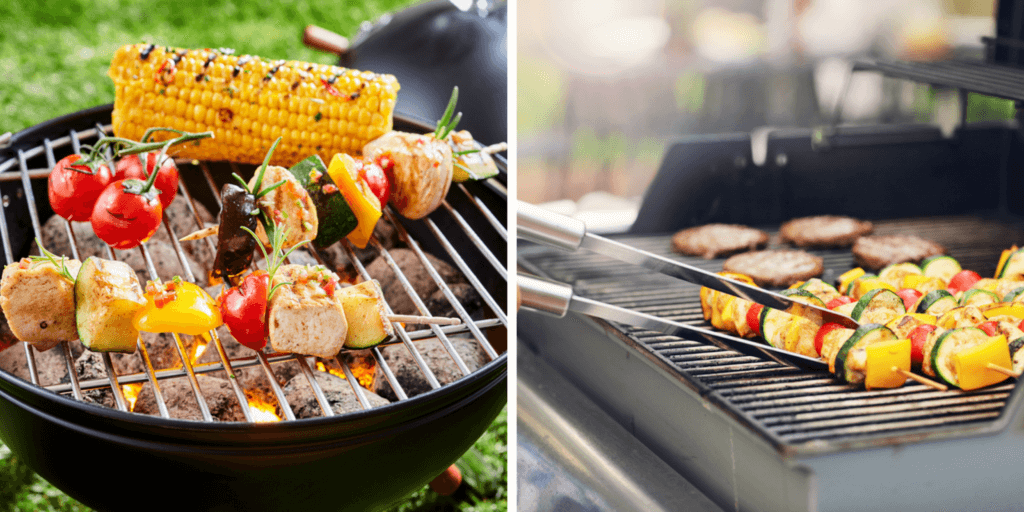
Two of the most common types of grills that you can install in your outdoor space include gas grills and charcoal grills. They each have their own benefits and drawbacks, and generally, people tend to have a preference for one over the other. When comparing a gas vs. charcoal grill to install in your backyard, make sure to consider the following factors to ensure you get the best fit for your needs.
Convenience & Temperature Control
Gas grills are easier to light and get to your desired temperature compared to charcoal grills. As a result, gas grills are better for quick, hassle-free cooking for busy individuals. You typically just need to light it using the dials on the grill a few minutes before you want to start grilling, then turn off the dials when you’re done for the evening. The temperature gauge installed on the hood of the grill should give you an accurate idea of the grill’s heat at any given time.
Charcoal grills come with their own perks, but they often require more time and attention to light and reach your desired level of heat. It’s not as convenient to light the charcoal briquettes either, which can take some practice until you get it right, then will need another 20 or 30 minutes to fully heat up. Unlike gas grills, there may be a bit of guesswork involved in figuring out the temperature of a charcoal grill.
Flavor
The flavor aspect is where charcoal grills shine. They infuse an authentic smoky flavor into your grilled foods, which gas grills do not provide. But, if you’re looking for a cleaner taste without smoke, you’ll want to go with a gas grill instead. Even still, many people prefer the taste of charcoal-grilled foods and do not like the lack of flavor that gas grills offer.
Versatility
Gas grills have more burners available for cooking different foods at varying temperatures, while charcoal grills can only offer one. Plus, many gas grills can be equipped with additional accessories like a rotisserie kit for further cooking capabilities.
Additionally, charcoal grills are often smaller in size than gas grills, though you may find a charcoal grill that has both direct and indirect cooking areas for a little more versatility in cooking capabilities. However, depending on your preferences and the dimensions of your outdoor space, this size difference may draw you more towards charcoal grills, as they tend to be smaller and less bulky.
Environmental Impact
If you’re concerned about the environmental impact of grilling, you may opt for a gas grill over charcoal. By nature, charcoal grills will produce more carbon emissions than gas grills, in addition to the ember and ash created that can impact the air quality in your yard. Of course, neither of these options is entirely eco-friendly, but this may be something to consider as you’re weighing the pros and cons of each.
Final Thoughts on Charcoal vs. Gas Grills
As you can see above, each type of grill has its perks and drawbacks, and one isn’t necessarily better than the other. While you may already have your own preferences in this age-old debate between charcoal and gas grills, the points listed here should point you in the right direction so you can choose the grill that’s best for you.
